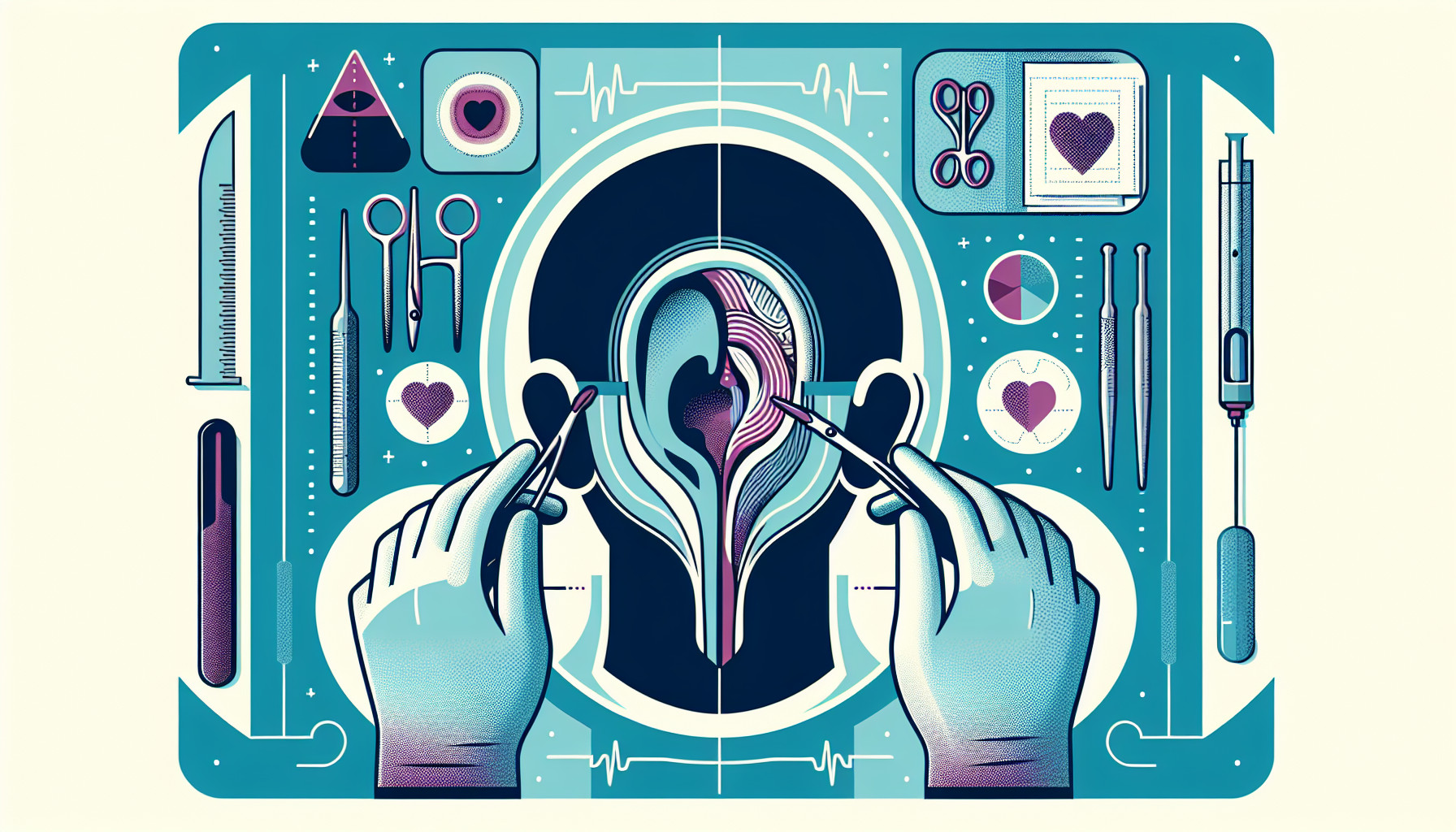Our Summary
This research paper is about a new, specially designed miniature camera (endoscope) that can be steered through the Eustachian tube (a small tube that connects your throat to your middle ear). The researchers tested this endoscope on three human ear specimens from cadavers. They found that the endoscope was able to successfully travel through the Eustachian tube and provide clear, high-quality images of the middle ear. This could be a useful tool for diagnosing ear problems in the future.
FAQs
- What is the purpose of the new, specially designed miniature camera (endoscope)?
- How did the researchers test the functionality of this new endoscope?
- How can this new endoscope potentially aid in diagnosing ear problems in the future?
Doctor’s Tip
One helpful tip a doctor might tell a patient about ear tube surgery is to keep the ears dry after the procedure. This means avoiding swimming or getting water in the ears until the doctor gives the go-ahead. Moisture in the ears can increase the risk of infection and interfere with the healing process. It’s important to follow any post-operative instructions provided by the doctor to ensure a successful recovery.
Suitable For
Patients who are typically recommended ear tube surgery include:
Children with recurrent ear infections: Ear tube surgery may be recommended for children who have had multiple ear infections within a short period of time. The tubes help to alleviate the pressure in the middle ear and prevent fluid buildup, reducing the risk of infection.
Adults with chronic middle ear infections: Some adults may also benefit from ear tube surgery if they have chronic middle ear infections that do not respond well to other treatments.
Patients with Eustachian tube dysfunction: Eustachian tube dysfunction can cause problems with equalizing pressure in the middle ear, leading to discomfort and hearing loss. Ear tube surgery may be recommended to help improve Eustachian tube function.
Patients with fluid buildup in the middle ear: Fluid buildup in the middle ear can cause hearing loss and discomfort. Ear tube surgery can help to drain the fluid and restore normal hearing.
Patients with barotrauma: Barotrauma occurs when there is a sudden change in air pressure, such as during air travel or scuba diving. Ear tube surgery may be recommended for patients who experience frequent barotrauma.
Overall, ear tube surgery is typically recommended for patients who have recurrent ear infections, chronic middle ear problems, Eustachian tube dysfunction, fluid buildup in the middle ear, or barotrauma. It is important to consult with an ear, nose, and throat specialist to determine if ear tube surgery is the right treatment option for you.
Timeline
Before ear tube surgery:
- Patient experiences recurring ear infections or fluid buildup in the middle ear.
- Patient may have difficulty hearing or experience balance issues.
- Patient consults with an ENT specialist who recommends ear tube surgery as a treatment option.
During ear tube surgery:
- Patient undergoes a pre-operative evaluation to assess their overall health and determine the need for surgery.
- Surgery is conducted under general anesthesia, during which the ENT surgeon makes a small incision in the eardrum and inserts a tiny tube to help ventilate the middle ear.
- The procedure typically takes about 15-20 minutes.
After ear tube surgery:
- Patient may experience mild discomfort or ear drainage for a few days following the surgery.
- Patient is advised to avoid getting water in the ears and to follow up with the ENT specialist for post-operative care.
- Most patients experience improved hearing and reduced frequency of ear infections after the surgery.
- Follow-up appointments are scheduled to monitor the condition of the ear tubes and ensure proper healing.
What to Ask Your Doctor
- What are the reasons for recommending ear tube surgery in my case?
- What are the potential risks and complications associated with ear tube surgery?
- How long will the ear tubes need to stay in place?
- What can I expect during the recovery period after ear tube surgery?
- Will I need any follow-up appointments or additional treatments after the surgery?
- How will ear tube surgery affect my hearing and balance?
- Are there any specific precautions I should take after the surgery to prevent complications?
- Will I need to make any lifestyle or dietary changes before or after the surgery?
- How will the endoscope technology be used during the surgery, and how does it differ from traditional methods?
- Are there any alternative treatment options to consider before proceeding with ear tube surgery?
Reference
Authors: Freeman MH, Gafford JB, Fichera L, Noble J, Webster RJ 3rd, Labadie RF. Journal: Otol Neurotol. 2022 Feb 1;43(2):206-211. doi: 10.1097/MAO.0000000000003384. PMID: 34669684
